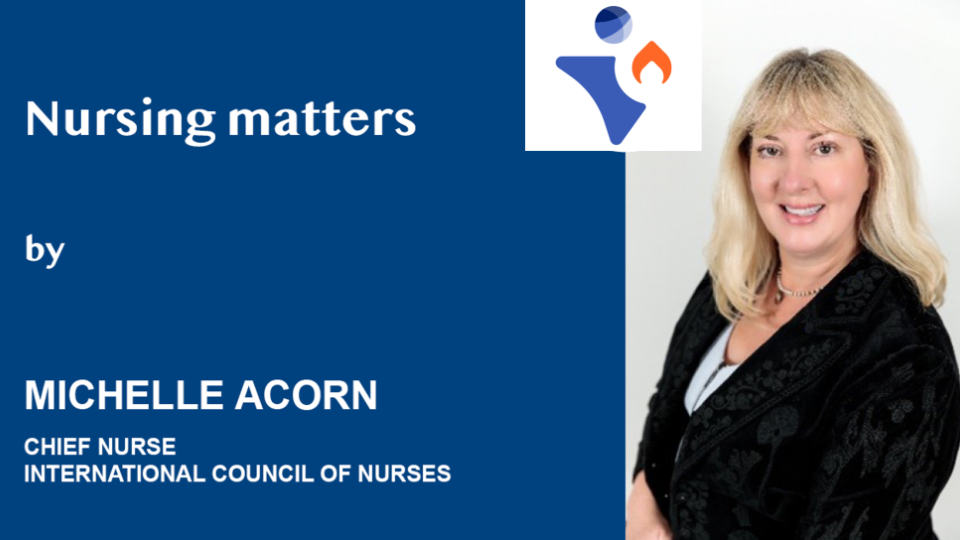Chief Nurse Blog: Nursing Matters August 2023

ICN’s stated mission is to represent the global nursing workforce, promote nurses’ wellbeing and advocate for health in every aspect of human life.
We do this last aspect of our mission by using our influence to ensure that policy making in all government departments, not just health departments, include health and health care as an essential component.
One of the tools ICN uses to do this is through our position statements, which are developed by our talented Nursing Department staff in collaboration with representatives from our National Nursing Association members and Board members.
We have just published three new statements on patient safety, health inequities and digital health, each of which addresses vital aspects of health care in every part of the world.
Patient Safety
Our statement on patient safety highlights the importance of having safe staffing levels and ensuring the safety of the health care workforce.
Far too many patients come to harm while receiving unsafe care, and our statement calls on governments, especially those in low- and middle-income countries, to increase investment, recruitment, development, training and retention of the health workforce, as a critical action to reduce patient harm and advance patient safety.
One of the ways individual nurses can contribute to this aim is to get involved in this year’s World Health Organization World Patient Safety Day on 17 September, under the theme Engaging Patients for Patient Safety.
Chief Nurse Challenge: I would like to challenge all nurses to register for and complete ICN’s educational module on patient safety so that we all recognise the importance of patient safety and how we can help to improve it.
Health Inequities, Discrimination and the Nurse’s Role
Our statement on health iniquities addresses the role of nurses in tackling discrimination in health care by advocating for equity and social justice, and by supporting the actions that are necessary to meet the needs of the public, and especially people in vulnerable populations.
Chief Nurse Challenge: Health iniquities are major roadblocks on the path to the Sustainable Development Goals and Universal Health Coverage. I urge all nurses to revisit the ICN Code of Ethics for Nurses, which gives clear guidance on nurses’ professional obligations in relation to equal access to health care.
Digital Health Transformation and Nursing Practice
ICN’s statement on digital health emphasises the increasing importance of digital technologies, which are already part of contemporary nursing practice, in the transformation of health care systems.
Alongside the many advantages of technological developments for both nurses and their patients, nurses should be aware of the potential challenges and risks, especially with regard to the recent explosion in access to artificial intelligence and its as-yet unknown impact on health care delivery in the future.
Chief Nurse Challenge: ICN has been at the forefront of the integration of information technology and nursing care through its International Classification for Nursing Practice (ICNP). ICNP provides an agreed set of terms that can be used to record the observations and interventions of nurses around the world. I urge all nurses to visit ICNP website and consider how it could be used to improve the practice in their workplaces.
I hope that nurses everywhere will familiarise themselves with these new position statements and think about how they can use them to influence their practice and improve the health outcomes of the people they care for. That is what the position statements are ultimately intended to do.